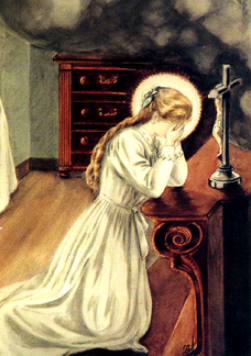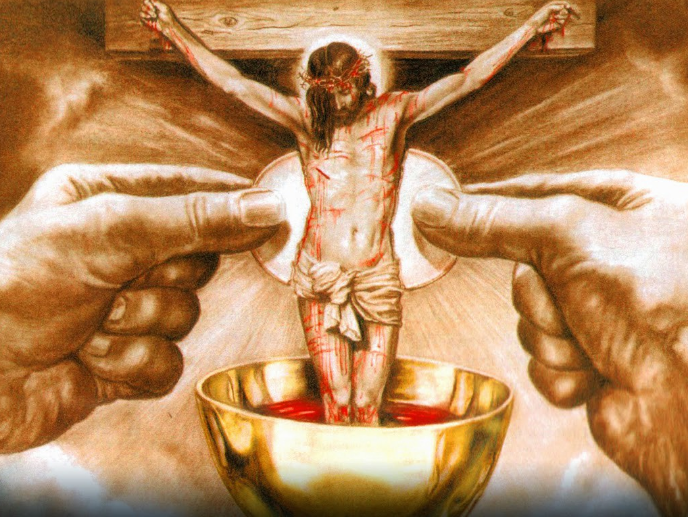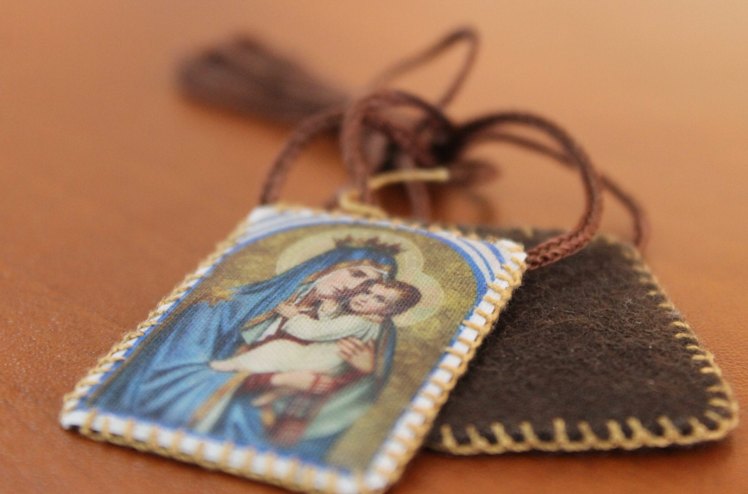Hello and a very warm welcome back. Today we will be addressing the question of how to stay in a state of grace.
When we talk about the state of grace, we mean sanctifying grace as opposed to actual grace. Since we are always given the opportunity to turn to God even when we have fallen out of grace, we can say that actual grace is always present and available to us.
But sanctifying grace can be lost through grave sin.
The consequences of staying out of grace are truly devastating because if we die without being in a state of grace, we must face eternal death in hell.
Also, the longer we neglect to get back into a state of grace by a good confession, the weaker we become against further temptations and the power of Satan is increased over us.
Of how much future merit do we not deprive ourselves by leaving the soul in a state of spiritual death?!
To stay in a state of grace we must strive for more than the minimum. We must never be content with our current level of virtue, but should always strive for greater. In a word, we must constantly pursue holiness.
There are many specific means to stay in a state of grace but some key ones would be:
- Vocal Prayer
- Mental Prayer
- Frequentation of the Sacraments
- Attending the Holy Mass
- Mortification and Avoiding the Occasions of Sin
- The Devout use of the Brown Scapular
- Spiritual Reading and Other Exercises of Piety
As you can see, these means are also means of progressing in the spiritual life. The spiritual life is not something static – we either move forward or allow ourselves to fall back. As St. Paul says, it is a race!
Let’s look at these important means in some more detail.
Table of Contents
Vocal Prayer
Firstly, we should keep up vocal prayer. This is the most basic form of prayer. We are rendering to God His due by both body and soul.
Vocal prayer can take any form and can include attending Liturgical prayer such as the Holy Mass and the Divine Office.
We must also recite the Holy Rosary daily and as DEVOUTLY as possibly. It is related of one of the spiritual daughters of St. Teresa of Avila that upon appearing to her, the Seraphic Mother said “I would be willing to return to a life of suffering if thereby I could merit that degree of grace with which God rewards one devoutly recited Hail Mary.”
Related Article: How to Effectively Pray the Rosary.
But vocal prayer does not always have to be made following a set formula. It is a very good practice to simply talk to God, as well as the Holy Virgin and your favourite Saints in your own words. This may also be called having familiar conversation with God. St. Alphonsus Liguori has written a small and wonderful book on this very topic.
Mental Prayer

It’s simply not enough just to do vocal prayer and go to Mass on Sunday. That’s what many Catholics do who struggle to stay in a state of grace.
What is needed is mental prayer.
Mental prayer is a deeper and more sanctifying encounter with God. It is also more personal. In The Great Means of Salvation and Perfection by St. Alphonsus Liguori, we find a quote that says “All the Saints became Saints by mental prayer.”
And St. Teresa of Avila says: “It is impossible for him who perseveres in mental prayer to continue in sin; he will either give up meditation or renounce sin… Mental prayer and sin cannot exist together.”
Taking some time aside each day, even if only 15 minutes, will meet this requirement.
By meditation, they eyes of the soul are opened and with this comes the knowledge of our faults, the things we need to mortify and correct, and the particular virtues we should especially be striving to acquire or improve.
The goal of a good meditation is to enflame the heart, to rouse it to fervour, and from there we find great motivation and grace to continue the spiritual warfare; we gain ground against vice, and greater love for God.
For more about mental prayer and how to practice meditation effectively, see our article on: Mental Prayer | How it Works | The Method of St. Alphonsus.
Frequentation of the Sacraments
The Sacraments give grace of themselves – Ex Opere Operato. They are an absolute must for progress in grace and preventing us from falling away from it.
Confession isn’t just for the doing away of mortal sins and getting back into a state of grace after losing it, but it is also a way to polish the soul, to remove venial sins and with frequency, it enables us to be more vigilant and overcome future temptations.
The Eucharist is a great source of grace, curing all kinds of spiritual ills and strengthening all the virtues in the soul.
It must NEVER be taken if one is conscious of any grave sin that has not yet been confessed. Sadly, we hardly hear this being emphasised anymore by the clergy of today.
Related Article: The Holy Eucharist, Sacrifice and Sacrament. Interesting Facts.
Attending the Holy Mass
The Mass is the greatest prayer as well as the ultimate act of Divine worship. It obtains all kinds of graces for us, both spiritual and physical.
There are those who say ‘I get nothing out of Mass.’ But how do you know that? Graces are spiritual; oftentimes, you can’t feel them, but that doesn’t mean you didn’t get anything, or someone else didn’t get grace and blessings as a result of you attending the Holy Mass.
Go with faith! There is an infinite source of grace at the Mass. It is Calvary continued, renewed, brought into our present time through the great mystery of the Holy Eucharist.
For more on the Holy Mass, see the Sixteen Promises when Assisting at the Mass.

Mortification and Avoiding the Occasions of Sin
It may sound difficult and can be, but mortification and avoiding occasions of sin will follow naturally from a life of regular prayer. But this is true only if you are also engaging in mental prayer. Otherwise, it is highly unlikely that you will persevere in grace and mortify what needs correcting in yourself. It is also mental prayer that will keep you from putting yourself in the occasions of sin.
A prayerful person is a mortified person and a mortified person is prayerful.
The Devout use of the Brown Scapular
The Brown Scapular is a miniature version of the habit of the Carmelites. To wear it shows our devotion and consecration to Mary and especially under the title of Our Lady of Mt. Carmel.

In our home this devotion was always strongly emphasised, but sadly it is not so common anymore, though it should be because of the great protection it brings.
We should wear it with faith and piety and strive to lead good lives so that we may avail of the promise of the Holy Virgin of Mt. Carmel who said to St. Simon Stock:
“Take this Scapular, it shall be a sign of salvation, a protection in danger and a pledge of peace. Whosoever dies clothed in this (the Brown Scapular) shall not suffer eternal fire.”
The other promise of devotion to the Scapular is the Sabbatine Privilege.
For more information on the Scapular and wonderful stories related to it, visit this page.
Spiritual Reading and Other Exercises of Piety

As St. Augustine says, “we address Him when we pray, we hear Him when we read.” Spiritual reading provides great food for prayer and contemplation. It also increases out knowledge of spiritual things and the way of virtue and perfection.
Cultivating a real interest in spiritual things through reading is a great way to stay focused on God and thereby remain in a state of grace.
As for other exercises of piety, you should be able to find some that you like and that work for you. But a very beneficial one is the Devotion of the Three Hail Marys. There is also the Way of the Cross and countless others.
A devotion to St. Joseph should also have a place in every Catholic’s life.
I hope you have found this post to be informative and inspirational. You are always encouraged to leave some comments below and share your thoughts.
May Jesus and Mary always bless and protect you good soul.

